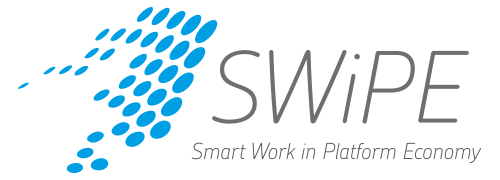
Changes in working life challenge competences. We are emphasising this message with a common voice. Is this a new situation? Well, not exactly. The work has changed its shape throughout the history of mankind. Of course, the speed of change is now and will be on a whole new level, and this challenges us all.
The discussion on the demand for competences of the future is a bit of a negative tone at the moment. This is probably due to the fact that we do not have the exact knowledge of what we need in the future. It also creates uncertainty; how flexibly we are able to meet the challenge. We also acknowledge that a small update in competences within the job tasks is no longer enough. The whole profession can change. Jobs will also disappear.
There is also concern about whether both employees and employers understand their responsibility for the development of competences. Are the authorities ready to invest enough and do the decision-makers understand the numerous, including indirect, positive effects of the securing of employment and the development of competences?
It is important to understand the positivity of the situation and go with smily faces in cooperation toward the future. We ourselves have persistently and successfully created the need for rapid updating of knowledge. Technological development is our own output. With that we seek, for example, work efficiency, easiness, safety and healthiness. The development of productivity will eventually create jobs for the future – we all benefit from this.
In order to keep up with the future we have created, the development of competences will be seen as part of the creation of the future, not as a obligatory reaction. The responsibility must be of the employer and the employee. It is clear that employers understand their responsibility for personnel development. On the other hand, no outside responsibility can straight add the knowledge to others. The right balance arises when we, as individuals, also realise that the future requires more and more responsibility for maintaining the competency on their own labour market.
We talk a lot about the development needs of the education system. Formal education and qualifications create conditions and, for example, increase labour market competency in the early stage of career. Our education system should also provide more flexibility in education, for example in modules. At the same time, we must not forget the active knowledge-management and informal learning – old familiar things that are becoming increasingly important.
Predicting and developing competences will happen also in the future effectively and impressively close to working life. We must challenge the cooperation between educational institutions and workplaces to cover also the development of staff skills at the workplace. Educational institutions could have something to give, but also to receive from this. We have not yet found all the forms of co-development.
Let us remember the broad scope of knowledge and education. The acutely necessary competence of technological development is important and essential. We must not fail to respond to this challenge. At the same time, our society needs also much more other knowledge and education. Both work communities and individuals need education. We should remember that the basic humane needs do not change in parallel with technological progress. Let us appreciate humanity and develop technology with this in mind. A civilized society can be productive – a productive society enables education.
Teemu Hassinen is a CEO at Association of Finnish Independent Education Employers.
Translation by Marja Rautajoki.
